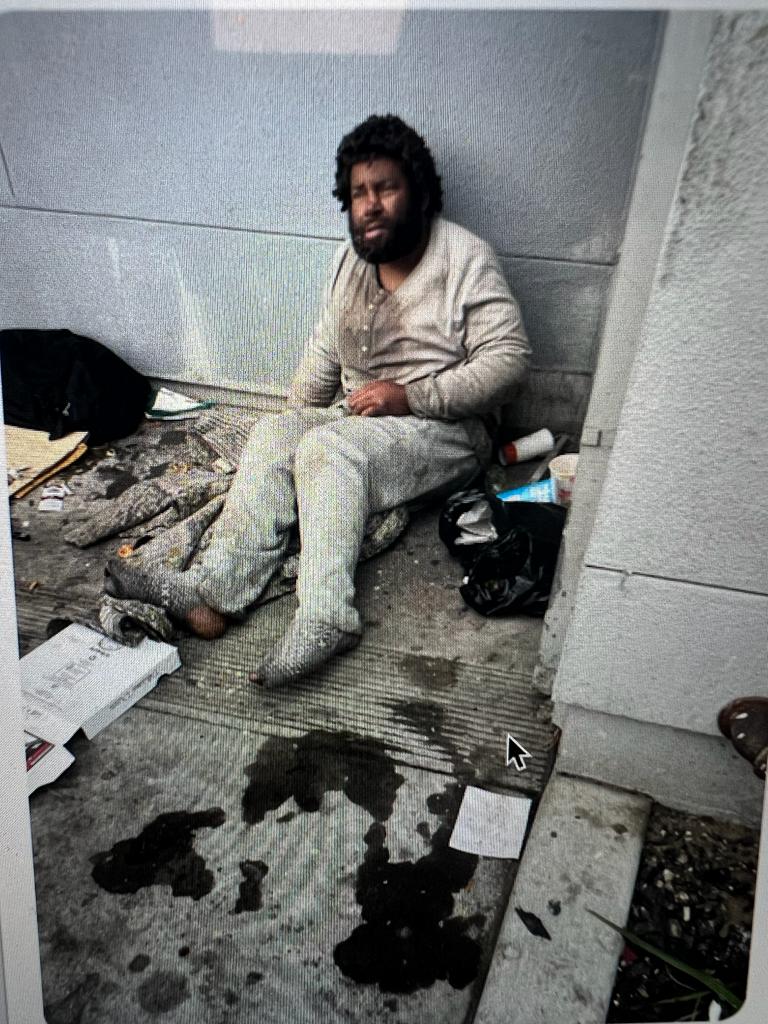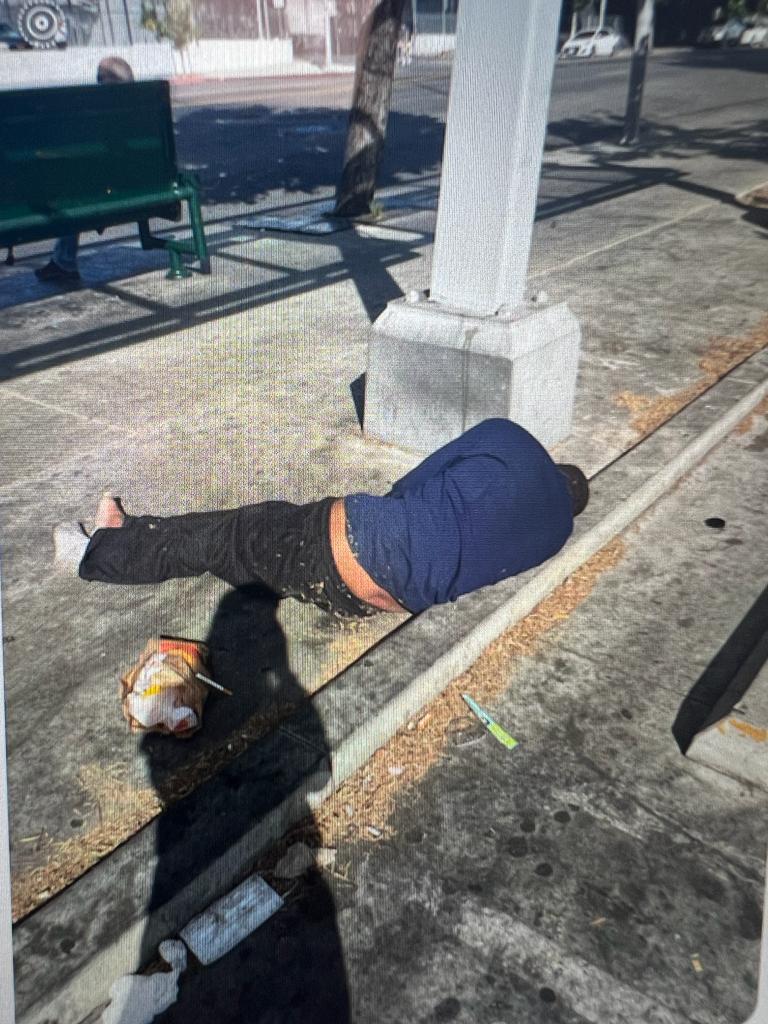

My colleague and I met with the HOME team last year. The HOME team is the outreach team from the Department of Mental Health in L.A. County that attends to the most severely mentally ill. At first, some of the team members thought that Billy’s disability was more due to his meth use despite the fact that he exhibited psychotic symptoms. In my opinion, this is an old way of thinking. The mental health world has siloed substance use and mental illness mostly because the funding is siloed. But if someone is sitting in the same spot for years, covered in urine, feces, and vomit – who really cares why? They need help, period!
I tried to relay this philosophy to the new psychiatrist on the HOME team, who seemed to take it to heart. I basically said, “He’s going to die soon; we can save him.” The HOME team came back on board. When visiting Billy in February, they thought that he was acting more strangely than usual, walking in and out of traffic. They hospitalized him at one of the county facilities, as he was altered and a danger to self. It turned out that he was septic – meaning, he had an infection that had entered his blood stream. This can cause organ failure and then, death. He was treated and did well but was also placed on a hold, meaning he was a danger to self and thus had to stay in the hospital involuntarily. Billy continued to say that he wanted to return to his corner, not understanding the seriousness of his condition. The HOME Team psychiatrist evaluated him for dementia; these results were very high. A subsequent MRI of the brain showed significant atrophy of brain matter.
On May 22, my colleague called me: “Guess who got conserved?!” He had gone to court and was granted conservatorship for grave disability. As of today, 7/29/23, Billy is still in the hospital. What he needs is to be in a subacute care facility – this is similar to a nursing home but patients are unable to leave voluntarily. But there is such a paucity of these facilities, and patients stay “parked” in the hospital. Once Billy’s medical issues are cleared up, Medicaid no longer pays for his hospital stay. County facilities are less financially motivated, and so the fact that he was at a county facility this time was key. Also, there was a psychiatrist who knew Billy and was fighting to make sure he was cared for. Most hospitals avoid conserving people (even those who obviously qualify) because once conserved, they are mandated to keep them in the hospital until an appropriate facility is found.
Billy was medically cleared probably about two months after his admission, but now stays at a more expensive place (a hospital) until a subacute “bed” is available – costing the county tens of thousands of dollars. But at least he’s safe, clean, taking his medications, fed and warm when it’s cold, and cool when it’s hot. He’s only thirty-eight years old.

